It was Annie Dillard who said, “How we spend our days is, of course, how we spend our lives.”
Mick Black of Sisters, Oregon, is spending his life making a difference for the people in the Ngenge area of northern Uganda—as co-owner, CEO, importer, exporter, roaster, administrative assistant, and janitor of Kabum Coffee.
So how does owning a coffee company make a difference in the world?
Answer: When the business model is “entirely and wholeheartedly humanitarian-based” and any earnings, after expenses, go right back to the country.
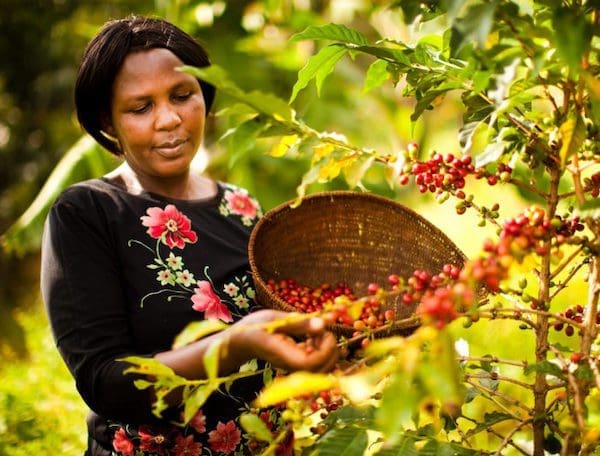
“There’s fair trade coffee. There’s farmer co-op coffee. And then there’s Kabum Coffee—some of the best coffee grown anywhere on the planet.”
Anyone can make the “best coffee” claim.
But Kabum has access to some of the finest available Bugisu Arabica beans, shade-grown in perfect conditions at a high elevation on the side of Mt. Elgon, an inactive volcano in Uganda. Here, the soil has been enriched with volcanic ash and forest decomposition.
Kabum also has the taste-test proof. It placed first at “A Taste of Uganda” with stiff competition from Kenya, Ethiopia, and Rwanda. And the Uganda Coffee Development Association scored “23 Women” brand of coffee—the brand affiliated with Kabum—on the high end of the scale.

Remarkable results
With a background in construction, Mick has been traveling to Uganda since 2007—to an area known as K&K, named after two remote villages, Kaplobotwo and Kabacheriya. These settlements were established as Internally Displaced Persons (IDP) camps at the base of Mt. Elgon.
A local Ugandan pastor understood that investing in the education of the children would be the key to transforming these villages. But there were no school buildings.
Through a “chance” meeting with the local pastor, Kingdomwork Ministries International (KMI), based in Powell Butte, Oregon, entered the picture with funding and materials.
Under the leadership of KMI, Mick supervised the raising of a dozen steel structures that accommodate dormitories, primary and secondary school classrooms, offices, a day care center, and a large kitchen.
Remarkable results have come from this effort to provide a quality education to the children from the K&K area:
- The student’s test scores surpass all other test results in the region.
- Many of the students graduating from the program are now professionals. And some of the girls who went on to receive teaching and nursing credentials have come back to work in the villages they grew up in.
- Local men helped with the construction of each building and, utilizing their newfound skills, eagerly erected two additional buildings (alone) in February 2019.
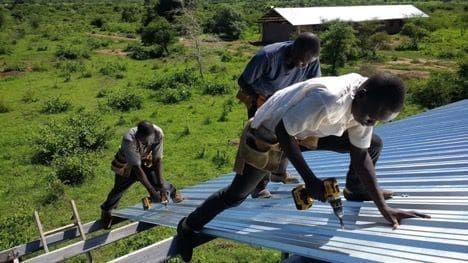
So little, but so appreciated
Kabum Coffee also partners with Hope Africa International (HAI), a non-profit managed by a team in Sisters, Oregon.
HAI is staffed by nationals in Kapchorwa, in the Mt. Elgon coffee-growing region. Through direct contact with students and their parents, HAI has tended to the educational, health, and emotional needs of hundreds of children—from preschool to high school—through a child-sponsorship program.
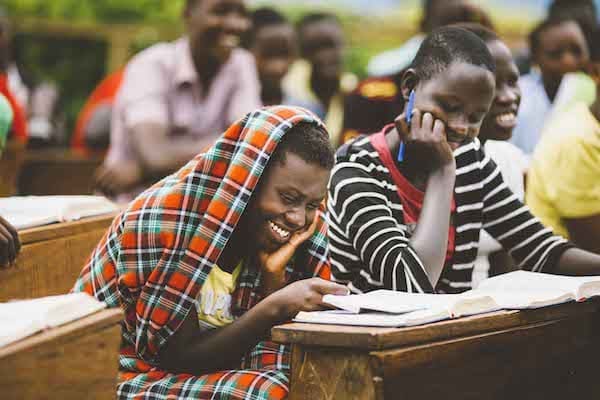
Mick travels to Uganda three to four times a year, for two and three weeks at a stretch. And he continues to be taken aback by the people, the area, and the adventure:
We have so much here that we don’t appreciate. They have so little, and they appreciate it all.
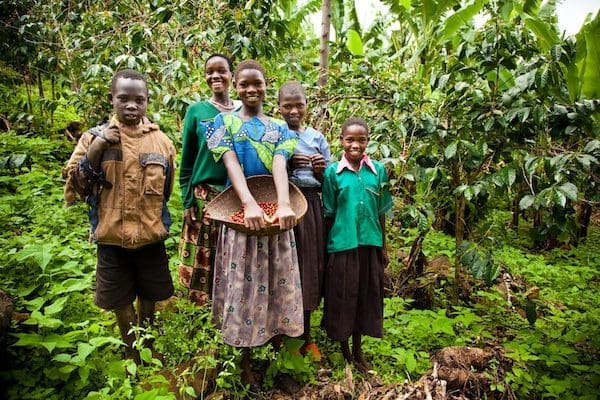
A shift in mission
The original founders of Kabum Coffee were professionals with big marketing dreams back in 2008-09. They hired an analyst from the University of Michigan to draft a Strategic Analysis Development Plan for a coffee venture in Uganda, including soil testing and marketing ideas.
However, due to unforeseen circumstances and lack of onsite supervision, the company had to close.
Mick had met the Ugandan coffee farmers—many had children in the HAI school-sponsorship program—and they were unhappy that Kabum was no longer in business.
Familiar with the marketing plans and all the work that had been done, Mick and a silent partner said, “We can’t let this thing die.” So they purchased the company at the end of 2017.
Which meant a shift in Mick’s mission work—from construction to assisting coffee farmers and economic development.
Even though Kabum has a recognized name and a reputation for some of the world’s best-tasting coffee, Mick’s recent purchase is still in a re-start-up phase.
“It’s pretty much a one-man show,” he said. “There are no employees because the sales are minimal.”
Mick is working on establishing retail sales with the “23 Women” brand in local stores. The product can also be ordered online “… with free delivery to your doorstep in the 97759 zip code!”
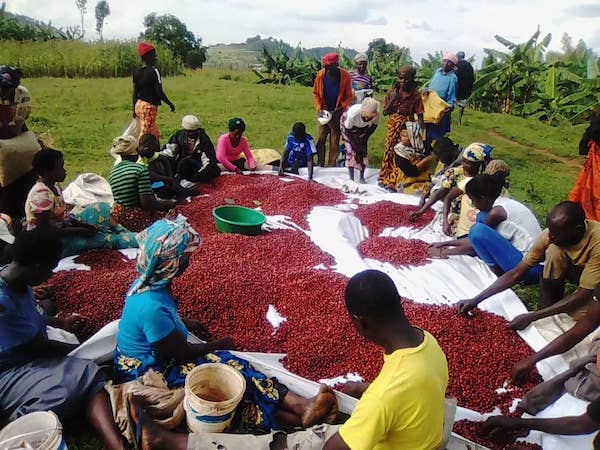
A nice cup of coffee
When asked about future goals for Kabum, Mick shared his vision for using the business as a vehicle with 4 specific objectives in mind.
1. Educate the farmers on best practices and organic farming
Mick is learning the most effective methods for cultivating coffee so he can pass that knowledge on to the farmers:
I’m constantly on the “University of YouTube,” learning farming techniques and educating myself from other coffee farmers around the world.
Mick’s eventual goal is to see the Ugandan farmers do it all themselves so he can kick back and enjoy a nice cup of coffee.
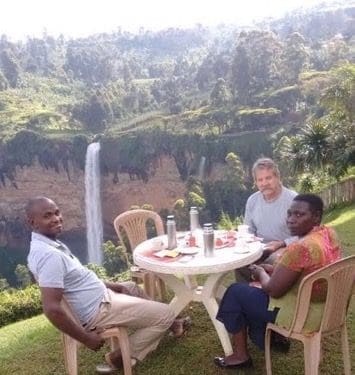
2. Focus on the plight of Ugandan women
In third world countries where women aren’t respected and can be cast out by husbands who bring in a new wife or concubine, women are suffering and left to raise their children and do the farming alone, which is the story behind the “23 Women” coffee group. “Coffee farming is a vehicle for them to hopefully get out of that struggle,” explained Mick.
3. Sell the Ugandan beans in the U.S. and return the profits to the country
Among other things, this would include purchasing equipment for farming, harvesting, processing, and milling; and providing a pulping/washing station, milling site, warehouse storage for drying of parchment, and greenhouses for starting a coffee seedling farm with disease resistant species.
4. Help establish coffee co-ops
The idea is to see more farmers band together to form co-ops for producing an exceptional quality coffee bean that would demand higher prices on the world market. This would increase their sales ability to avoid being taken advantage of by the “middlemen” coffee buyers who pay pennies on the dollar.
If you can’t feed a hundred
Mick talked about his first and second visits to Africa and how they impacted him in an eye-opening way. But …
On my third, fourth, and fifth trips, I started developing relationships. The faces had names and stories.
Mick, a follower of Jesus Christ, would love to move to Uganda and be part of this amazing venture up close and personal. “I want to get involved on that side of the world.” And then he added: “I don’t believe in retirement … it’s boring!”
There have been times when Mick has wanted to bale, “… because I don’t know what I’m doing.” But he perseveres with determination and faith and the understanding that God placed him exactly where he needs to be.
This wisdom from Mark Batterson, pastor of National Community Church in Washington, D.C., about crazy dreamers who don’t know what they’re doing:
Sometimes we have to do things that we have no qualifications for. … You gotta have a few crazy dreams that might take a lifetime to fulfill.
When people ask Mick about his missions work, he lets them know how they, too, can have the opportunity to make an impact: 1) by sponsoring a child’s education, and 2) by donating to building projects and medical clinics through KMI.
It was Mother Teresa who said, “If you can’t feed a hundred people, then feed just one.”
How to be a difference-maker, a world-changer?
By feeding one person at a time. By constructing one latrine, one water project, one classroom at a time. By sponsoring one child at a time.
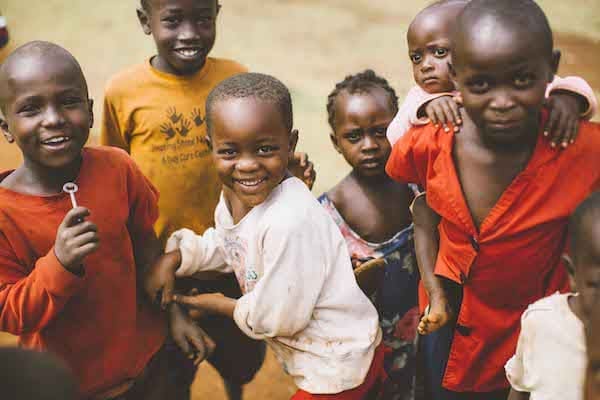
The poor you will always have with you, and you can help them anytime you want. — Jesus
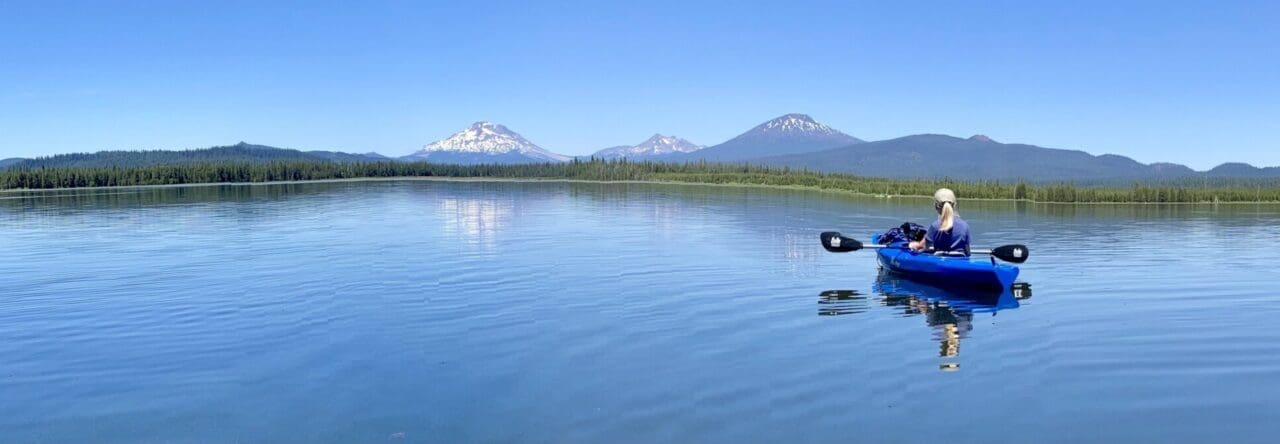
Grace Lawson
Mick is a great person changer !! Praise God !!!
I love helping people so hopefully I am a person changer also !! I have older friends that need help shopping and I love helping them !!!
Marlys Johnson
Grace, I wonder how many of us think our part is small and therefore doesn’t really make a difference. Can you imagine what it must be like for an older, slow-to-get-around person to have a visitor, someone to help with menial tasks, errands, and shopping? What you’re doing is no small thing, Grace.
Geneva Iijima
Great story! I love to hear of people who make a difference!
Marlys Johnson
They inspire us to make a difference, don’t they, Geneva!
Katie Keranen
Marlas, Thank you for this story! Mick is a genuinely kind, generous and faithful person. Hope Africa International and Kingdomwork Ministries International would not be the same without him! We look forward to seeing Kabum thrive!
Marlys Johnson
Thank YOU, Katie, for the good work you’re doing with Hope Africa International. You are truly a difference maker.